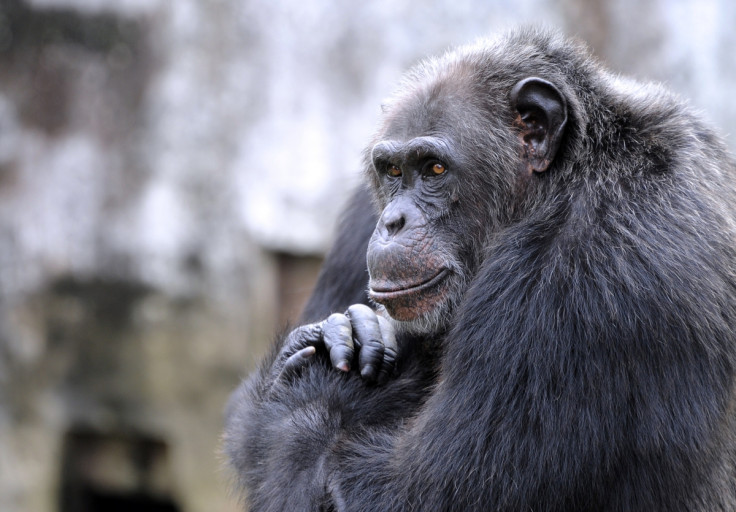Chimps Sharing Skills Recorded in Wild for First Time 'Sheds Light on Human Evolution'

Chimpanzees sharing skills in the wild have been recorded for the first time by scientists who were in the "right place at the right time".
An international team of researchers studying the Sonso chimp community in Uganda's Budongo Forest witnessed the spread of two tool-use behaviours, which they believe sheds light on human cultural evolution.
Researchers have long been intrigued by the differences in behaviour between chimp communities, with some using tools and others not. These variations are known as "cultural", in that one individual learns from another, but most of the time they are established so it is difficult to work out where the behaviour came from.
While often observed in captivity, critics have argued that without recording the cultural exchange in the wild the behaviour cannot be confirmed.
Published in PLOS Biology, researchers investigated the use of leaf-sponges – tools used to dip into water to drink from. They also looked at leaf sponge reuse, where chimps leave the leaf in a spot to use again.
Among the Sonso community, the alpha male made a moss sponge while being watched by the dominant adult female. Six days later, seven other chimps made and used moss sponges, with one also reusing a discarded sponge.
The team also recorded an adult male retrieving and using a discarded leaf sponge, which was followed by eight more chimps reusing the sponges even though only four had observed the re-use technique.
They estimated that chimps that observed moss-sponging were 15 times more likely to develop the behaviour than those that did not.
Scientists believe their findings show how tool use among humans evolved. Thibaud Gruber, Marie Curie Fellow at the University of Neuchatel, explained: "This study tells us that chimpanzee culture changes over time, little by little, by building on previous knowledge found within the community.
"This is probably how our early ancestors' cultures also changed over time. In this respect, this is a great example of how studying chimpanzee culture can help us model the evolution of human culture.
"Nevertheless, something must have subsequently happened in our evolution that caused a qualitative shift in what we could transmit, rendering our culture much more complex than anything found in wild apes. Understanding this qualitative jump in our evolutionary history is what we need to investigate now."
© Copyright IBTimes 2025. All rights reserved.






















